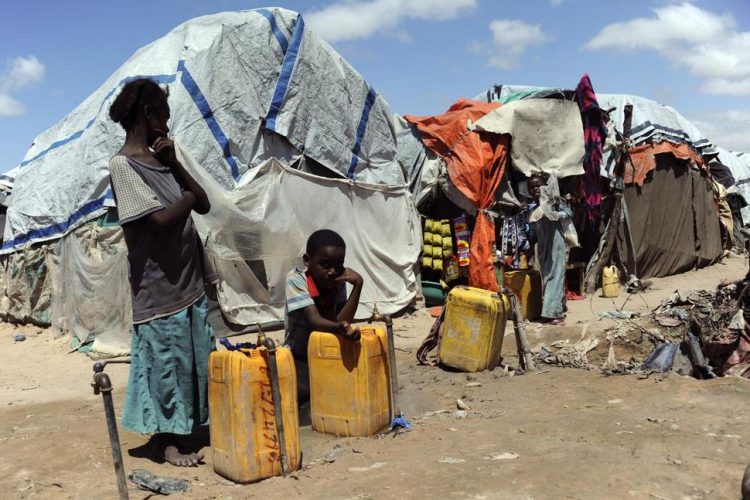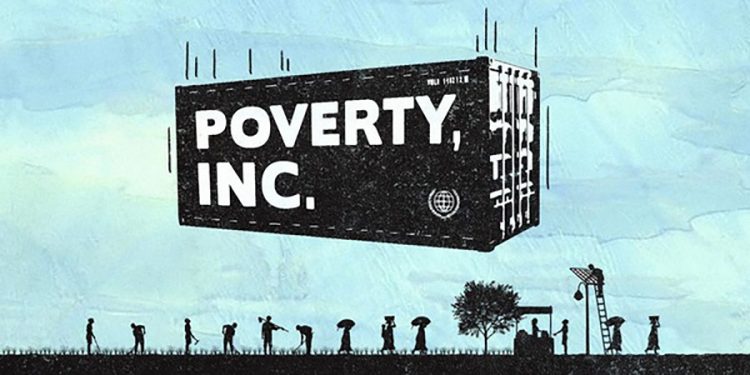The UN hopes to combat world hunger and poverty by 2030. But more than 800 million people still suffer chronic undernutrition – a quarter of them in Africa.
Extreme poverty rates have been cut by more than half since 1990. While this is a remarkable achievement, one in five people in developing regions still live on less than $1.90 a day, and there are millions more who make little more than this daily amount, plus many people risk slipping back into poverty.
Poverty is more than the lack of income and resources to ensure a sustainable livelihood. Its manifestations include hunger and malnutrition, limited access to education and other basic services, social discrimination and exclusion as well as the lack of participation in decision-making. Economic growth must be inclusive to provide sustainable jobs and promote equality.
United Nations – Sustainable Development – Goal 1: End poverty in all its forms everywhere
- By 2030, eradicate extreme poverty for all people everywhere, measured as people living on less than $1.90 a day
- By 2030, reduce at least by half the proportion of men, women and children of all ages living in poverty in all its dimensions according to national definitions
- Implement nationally appropriate social protection systems and measures for all, including floors, and by 2030 achieve substantial coverage of the poor and the vulnerable
- By 2030, ensure that all men and women, in particular the poor and the vulnerable, have equal rights to economic resources, as well as access to basic services, ownership and control over land and other forms of property, inheritance, natural resources, appropriate new technology and financial services, including microfinance
- By 2030, build the resilience of the poor and those in vulnerable situations and reduce their exposure and vulnerability to climate-related extreme events and other economic, social and environmental shocks and disasters
- Ensure significant mobilization of resources from a variety of sources, including through enhanced development cooperation, in order to provide adequate and predictable means for developing countries, in particular least developed countries, to implement programmes and policies to end poverty in all its dimensions
- Create sound policy frameworks at the national, regional and international levels, based on pro-poor and gender-sensitive development strategies, to support accelerated investment in poverty eradication actions
ENDING POVERTY – WHY IT MATTERS (PDF)

United Nations – Sustainable Development – Facts and Figures
- 767 million people live below the international poverty line of $1.90 a day
- In 2016, almost 10 per cent of the world’s workers live with their families on less than $1.90 per person per day
- The overwhelming majority of people living below the poverty line belong to two regions: Southern Asia and sub-Saharan Africa
- High poverty rates are often found in small, fragile and conflict-affected countries
- One in four children under age five in the world has inadequate height for his or her age
- Every day in 2014, 42,000 people had to abandon their homes to seek protection due to conflict
- Hunger is one of the most common reasons why people flee their homelands. Politicians repeatedly say that the causes behind so many people leaving Africa for Europe have to be addressed. Can the development aid work performed by private companies bring about the desired change? The United Nations has set itself ambitious goals: eradicating poverty and hunger around the world by 2030.
Poverty and profit – the business of development aid – DW Documentary
To achieve this, state development agencies are increasingly joining forces with the private sector. Governments claim that public funds are in limited supply, and that additional investment from businesses is necessary in order to achieve leverage effects. The use of entrepreneurial know-how creates a win-win situation for everyone involved, insist the proponents of public-private collaboration in the aid sector.
Critics, however, say that getting private companies involved in development aid was merely a way of promoting foreign trade and has not benefited the hungry. The DW documentary below analyses the political background behind public-private partnerships in development aid.
It looks at seven different models of collaboration in the food and agricultural sector in Kenya, Zambia and Tanzania: from the attempt launched by German companies to increase the productivity of Kenyan potato farmers, to the investment fund that uses development aid money to create returns for investors in Germany via huge soy and maize plantations.
The result of in-depth research, the film reveals the abuse of state development aid money by the private sector, and highlights the fundamental conflict between industrial and small-scale farming.
Is collaboration in development aid between private enterprise and the state possible in a way that genuinely benefits local populations?
DW Documentary gives you knowledge beyond the headlines
Discover the world around you every day
DW Documentary gives you knowledge beyond the headlines. Watch high-class documentaries from German broadcasters and international production companies. Meet intriguing people, travel to distant lands, get a look behind the complexities of daily life and build a deeper understanding of current affairs and global events. Subscribe and explore the world around you with DW Documentary.
Subscribe to DW Documentary
Follow us on Instagram
For more information visit our website
Facebook

FIGHTING POVERTY IS BIG BUSINESS – But who profits the most?
“I see multiple colonial governors.” Herman Chinery-Hesse
says Ghanaian software entrepreneur Mr. H. Chinery-Hesse of the international development establishment in Africa “We are held captive by the donor community.”
The West has positioned itself as the protagonist of development, giving rise to a vast multi-billion dollar poverty industry — the business of doing good has never been better.
Yet the results have been mixed, in some cases even catastrophic, and leaders in the developing world are growing increasingly vocal in calling for change.
Drawing from over 200 interviews filmed in 20 countries, Poverty, Inc. unearths an uncomfortable side of charity we can no longer ignore. From TOMs Shoes to international adoptions, from solar panels to U.S. agricultural subsidies, the film challenges each of us to ask the tough question: Could I be part of the problem?
WATCH THE TRAILER AND FULL FILM | SHARE ON SOCIAL MEDIA
How do you change the world?
From Live Aid to Make Poverty History, celebrities have become activists against poverty. Bob Geldof and Bono have been the most prominent voices advocating on behalf of the poor. But have their concerts and campaigns really lifted millions out of poverty? Geldof, Bono and Bill Gates speak candidly about how to lobby effectively and how to play to politicians’ weaknesses for glitz and popularity.